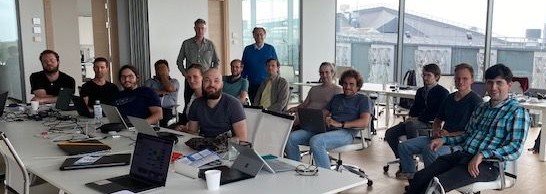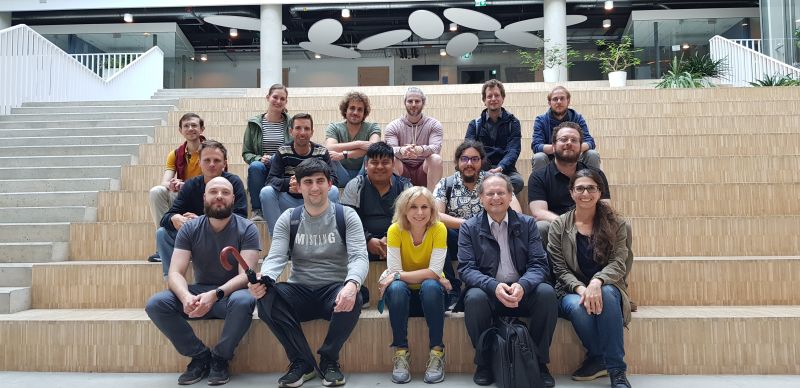Following the completion of the first campaign of assessments of NOMAD CoE flagship codes, POP was invited to join the concluding day of the NOMAD Rīga Hackathon (20 June 2022) at the impressive Latvia University School of Science. This hackathon was arranged at short notice to replace a NOMAD Midsummer School which sadly had to be cancelled due to the on-going Russian special genocide operation in Ukraine.
 18 NOMAD CoE developers of the ABINIT, Exciting and FHI-Aims flagship codes participated, along with Albert Farres from BSC who coordinated the performance assessment campaign with POP. Unfortunately, two of the (female) developers needed to quarantine and join the final part of the hackathon via video-conference from their hotel, but everyone greatly enjoyed the long-awaited opportunity for five days of face-to-face interaction in Riga. In the practical session of the hackathon, the three flagship codes were set up with suitable test cases on MareNostrum4 and then instrumented for initial measurements with Score-P. A subsequent round of POP assessments of GPU-enabled versions of the codes (or suitably prepared mini-app versions) is planned for 2023Q1.
18 NOMAD CoE developers of the ABINIT, Exciting and FHI-Aims flagship codes participated, along with Albert Farres from BSC who coordinated the performance assessment campaign with POP. Unfortunately, two of the (female) developers needed to quarantine and join the final part of the hackathon via video-conference from their hotel, but everyone greatly enjoyed the long-awaited opportunity for five days of face-to-face interaction in Riga. In the practical session of the hackathon, the three flagship codes were set up with suitable test cases on MareNostrum4 and then instrumented for initial measurements with Score-P. A subsequent round of POP assessments of GPU-enabled versions of the codes (or suitably prepared mini-app versions) is planned for 2023Q1.
The hackathon was immediately followed on 21 June 2022 by a full-day performance analysis tutorial on POP methodology and tools including presentations, demonstrations and hands-on work with POP tools: Scalasca, Score-P, CUBE & Vampir. The tutorial was organized in the School of Science by the EuroCC HPC National Competence Centre of Latvia, with financial support provided by the Baltic-German University Liaison Office. JSC provided the eight participants (two from NOMAD, the others from local universities) with accounts on its JUSUF HPC system, which was accessed via Jupyter-JSC running in a local web browser, to follow the exercises with the tools and subsequently apply the tools to their own application codes. In addition to the NOMAD flagship codes Exciting and FHI-Aims, OpenFOAM was another commonly-used HPC application analyzed in the afternoon session.

After more than two years of cancelled in-person meetings and virtual workshops and training, everyone agreed that in-person events are much more productive and that Rīga was the perfect location.
-- Brian Wylie (JSC)
